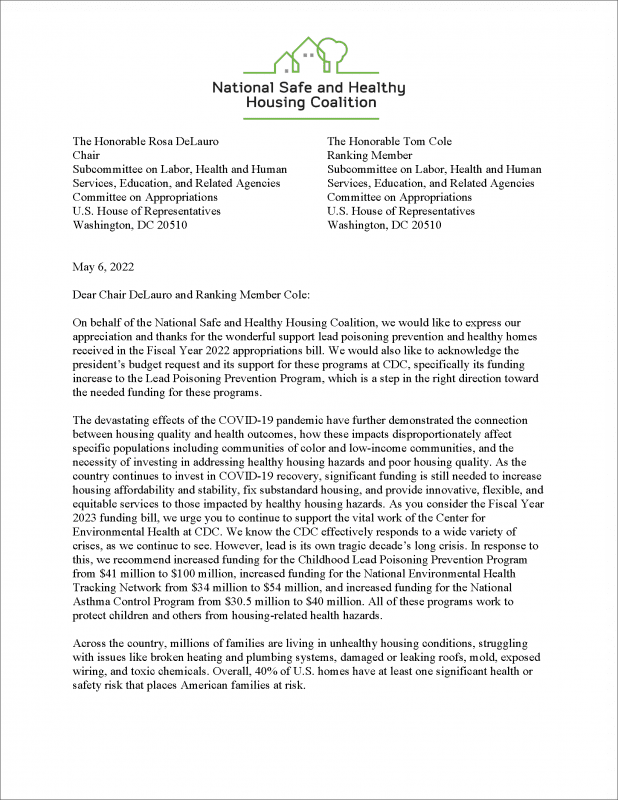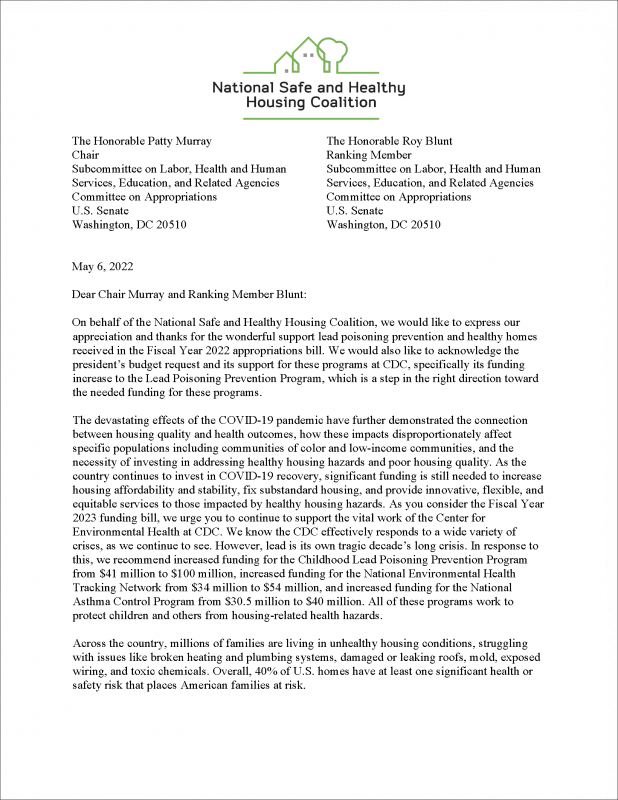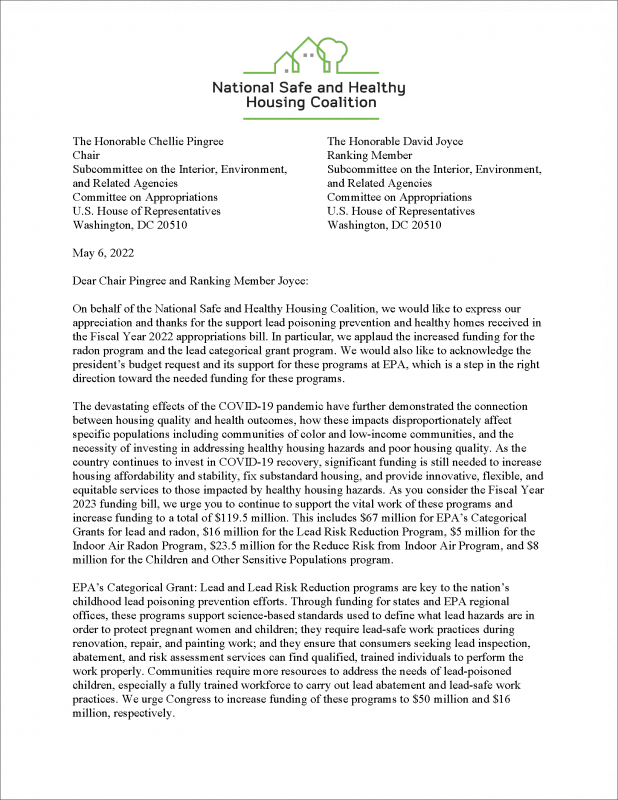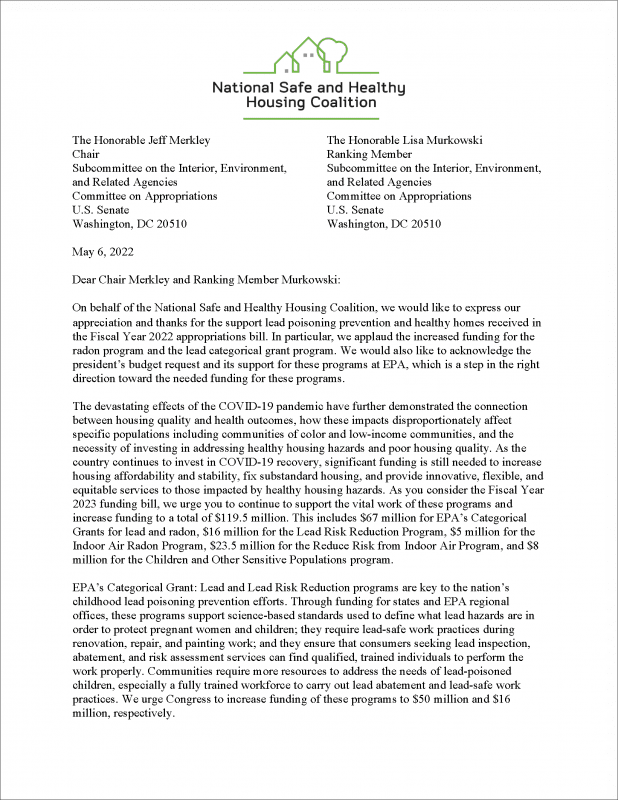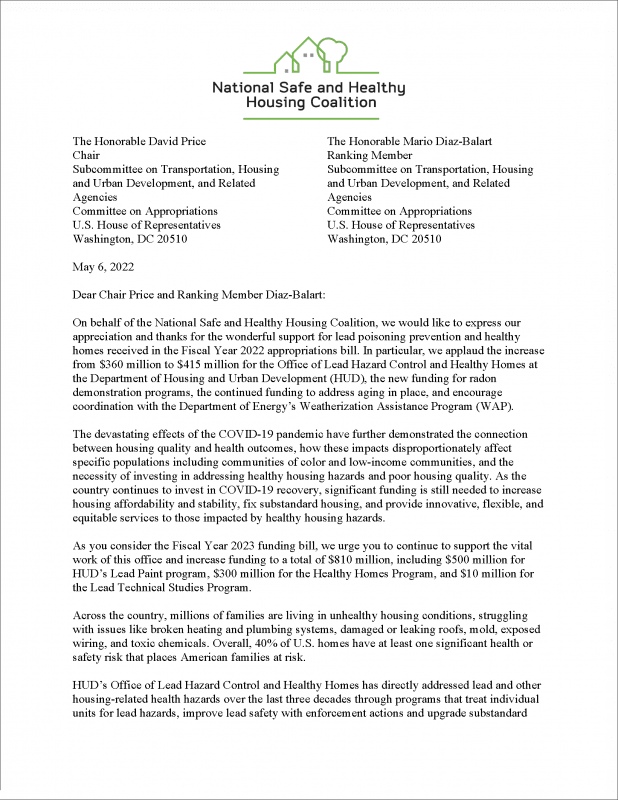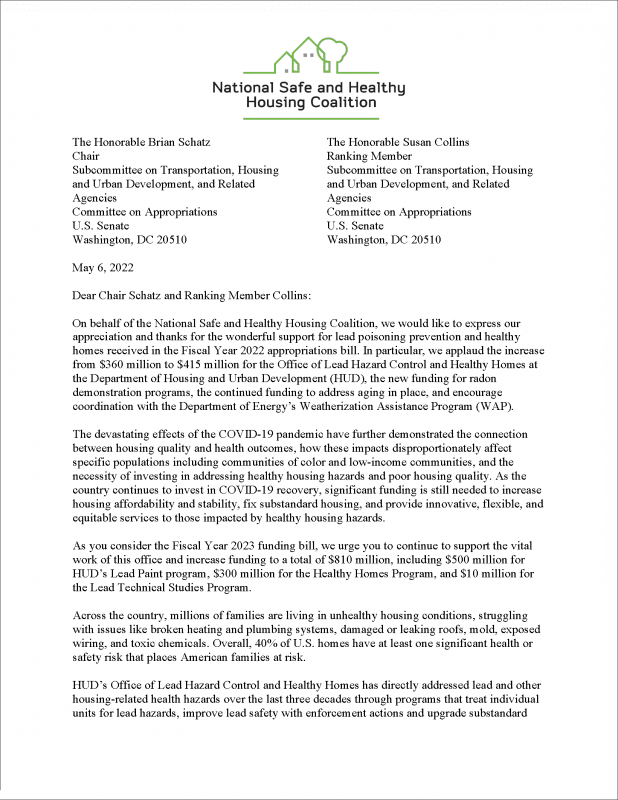National Safe and Healthy Housing Coalition
Action Letter Archive 2022
This page archives the action letters sent by the National Safe and Healthy Housing Coalition in a single location, organized by date.
The National Safe and Healthy Housing Coalition is a broad, voluntary coalition working to improve housing conditions nationwide through education and outreach to key national stakeholders and federal public decision-makers. The coalition promotes policies for safe and healthy housing in the United States with special emphasis on those who are disproportionately impacted.
Join the National Safe and Healthy Housing Coalition.
2022
May 6: FY23 Appropriations Letters to the U.S. House of Representatives and Senate to Support the Centers for Disease Control and Prevention (CDC)
Extract: The devastating effects of the COVID-19 pandemic have further demonstrated the connection between housing quality and health outcomes, how these impacts disproportionately affect specific populations including communities of color and low-income communities, and the necessity of investing in addressing healthy housing hazards and poor housing quality. As the country continues to invest in COVID-19 recovery, significant funding is still needed to increase housing affordability and stability, fix substandard housing, and provide innovative, flexible, and equitable services to those impacted by healthy housing hazards. As you consider the Fiscal Year 2023 funding bill, we urge you to continue to support the vital work of the Center for Environmental Health at CDC. We know the CDC effectively responds to a wide variety of crises, as we continue to see. However, lead is its own tragic decade’s long crisis. In response to this, we recommend increased funding for the Childhood Lead Poisoning Prevention Program from $41 million to $100 million, increased funding for the National Environmental Health Tracking Network from $34 million to $54 million, and increased funding for the National Asthma Control Program from $30.5 million to $40 million. All of these programs work to protect children and others from housing-related health hazards.
May 6: FY23 Appropriations Letters to the U.S. House of Representatives and Senate to Support the Environmental Protection Agency (EPA)
Extract: The devastating effects of the COVID-19 pandemic have further demonstrated the connection between housing quality and health outcomes, how these impacts disproportionately affect specific populations including communities of color and low-income communities, and the necessity of investing in addressing healthy housing hazards and poor housing quality. As the country continues to invest in COVID-19 recovery, significant funding is still needed to increase housing affordability and stability, fix substandard housing, and provide innovative, flexible, and equitable services to those impacted by healthy housing hazards. As you consider the Fiscal Year 2023 funding bill, we urge you to continue to support the vital work of these programs and increase funding to a total of $119.5 million. This includes $67 million for EPA’s Categorical Grants for lead and radon, $16 million for the Lead Risk Reduction Program, $5 million for the Indoor Air Radon Program, $23.5 million for the Reduce Risk from Indoor Air Program, and $8 million for the Children and Other Sensitive Populations program.
May 6: FY23 Appropriations Letters to the U.S. House of Representatives and Senate to Support the Department of Housing and Urban Development (HUD)
Extract: The devastating effects of the COVID-19 pandemic have further demonstrated the connection between housing quality and health outcomes, how these impacts disproportionately affect specific populations including communities of color and low-income communities, and the necessity of investing in addressing healthy housing hazards and poor housing quality. As the country continues to invest in COVID-19 recovery, significant funding is still needed to increase housing affordability and stability, fix substandard housing, and provide innovative, flexible, and equitable services to those impacted by healthy housing hazards. As you consider the Fiscal Year 2023 funding bill, we urge you to continue to support the vital work of this office and increase funding to a total of $810 million, including $500 million for HUD’s Lead Paint program, $300 million for the Healthy Homes Program, and $10 million for the Lead Technical Studies Program.
